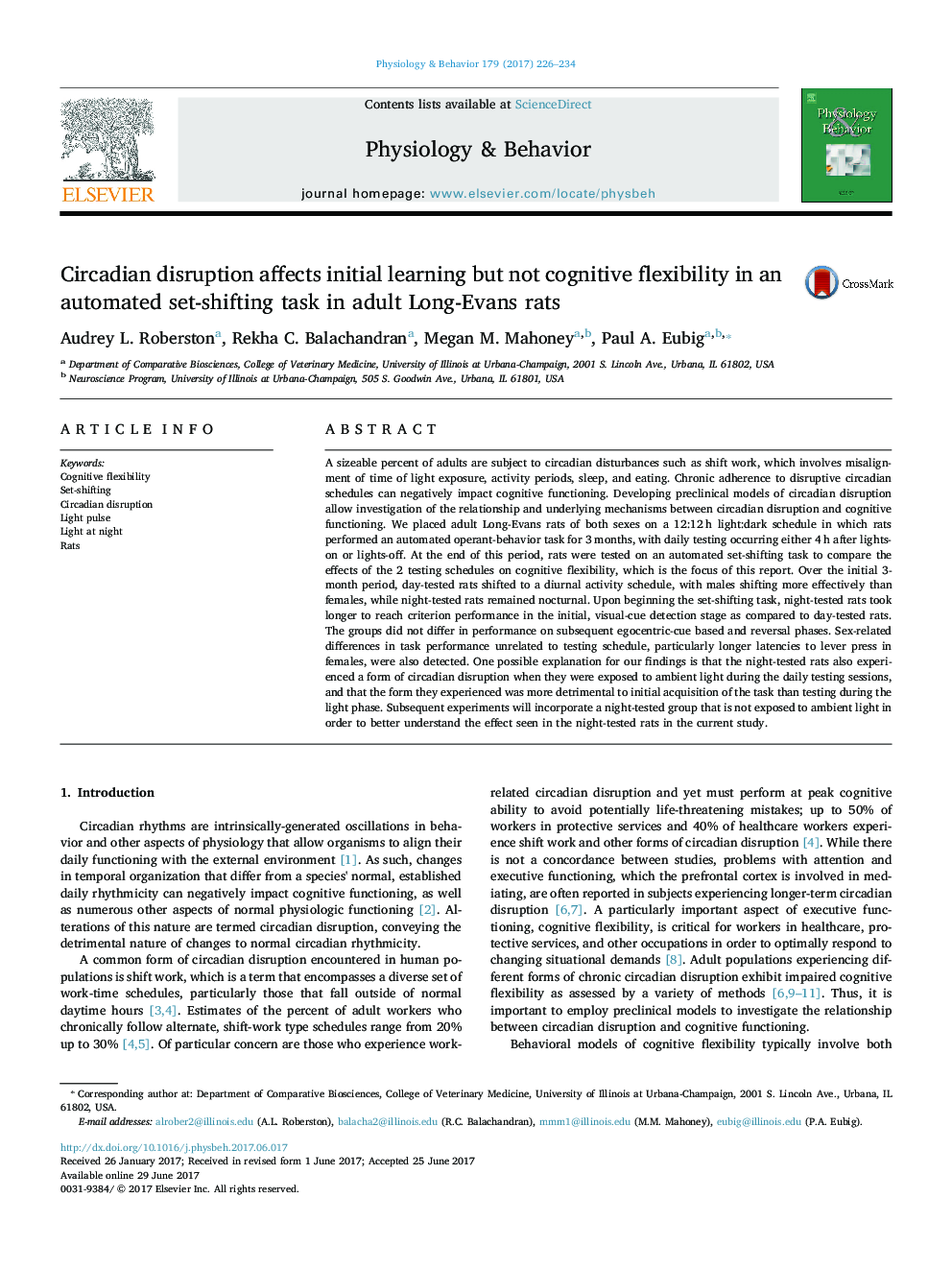| کد مقاله | کد نشریه | سال انتشار | مقاله انگلیسی | نسخه تمام متن |
|---|---|---|---|---|
| 5593647 | 1571140 | 2017 | 9 صفحه PDF | دانلود رایگان |
عنوان انگلیسی مقاله ISI
Circadian disruption affects initial learning but not cognitive flexibility in an automated set-shifting task in adult Long-Evans rats
دانلود مقاله + سفارش ترجمه
دانلود مقاله ISI انگلیسی
رایگان برای ایرانیان
کلمات کلیدی
موضوعات مرتبط
علوم زیستی و بیوفناوری
بیوشیمی، ژنتیک و زیست شناسی مولکولی
فیزیولوژی
پیش نمایش صفحه اول مقاله

چکیده انگلیسی
A sizeable percent of adults are subject to circadian disturbances such as shift work, which involves misalignment of time of light exposure, activity periods, sleep, and eating. Chronic adherence to disruptive circadian schedules can negatively impact cognitive functioning. Developing preclinical models of circadian disruption allow investigation of the relationship and underlying mechanisms between circadian disruption and cognitive functioning. We placed adult Long-Evans rats of both sexes on a 12:12Â h light:dark schedule in which rats performed an automated operant-behavior task for 3Â months, with daily testing occurring either 4Â h after lights-on or lights-off. At the end of this period, rats were tested on an automated set-shifting task to compare the effects of the 2 testing schedules on cognitive flexibility, which is the focus of this report. Over the initial 3-month period, day-tested rats shifted to a diurnal activity schedule, with males shifting more effectively than females, while night-tested rats remained nocturnal. Upon beginning the set-shifting task, night-tested rats took longer to reach criterion performance in the initial, visual-cue detection stage as compared to day-tested rats. The groups did not differ in performance on subsequent egocentric-cue based and reversal phases. Sex-related differences in task performance unrelated to testing schedule, particularly longer latencies to lever press in females, were also detected. One possible explanation for our findings is that the night-tested rats also experienced a form of circadian disruption when they were exposed to ambient light during the daily testing sessions, and that the form they experienced was more detrimental to initial acquisition of the task than testing during the light phase. Subsequent experiments will incorporate a night-tested group that is not exposed to ambient light in order to better understand the effect seen in the night-tested rats in the current study.
ناشر
Database: Elsevier - ScienceDirect (ساینس دایرکت)
Journal: Physiology & Behavior - Volume 179, 1 October 2017, Pages 226-234
Journal: Physiology & Behavior - Volume 179, 1 October 2017, Pages 226-234
نویسندگان
Audrey L. Robertson, Rekha C. Balachandran, Megan M. Mahoney, Paul A. Eubig,